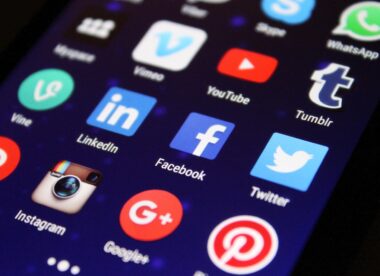Scheduling Tools for Influencer Marketing Campaigns
In today’s digital landscape, influencer marketing has become a vital component of brand strategies. Leveraging scheduling tools can streamline this process, ensuring consistent and timely engagement. Tools such as Buffer, Hootsuite, and Sprout Social offer various features that help brands plan, schedule, and analyze posts for influencer collaborations. These platforms allow marketers to create a strategic calendar, ensuring that all content is published at optimal times for audience engagement. Additionally, scheduling tools enable brands to tailor content to specific time zones, making the most of their influencer’s reach. This helps in maximizing visibility and engagement rates for campaigns aimed at specific demographics. Furthermore, using automation tools can save valuable time for marketers, allowing them to focus on other crucial tasks. By automating posting and interaction schedules, brands can maintain an active online presence without the constant need for manual intervention. Consequently, influencer marketing efforts become less overwhelming and more focused, ultimately driving better results. Ensuring that the right content reaches audiences at the right time is key to successful campaigns.
Another essential benefit of using scheduling tools in influencer marketing is the analytics capability they provide. Platforms like Later and CoSchedule not only allow scheduling but also offer insights on performance metrics. These insights can help brands understand which types of content resonate most with their audience. By monitoring engagement and growth patterns, marketers can refine their strategies, tailoring campaigns to better suit audience preferences. Analytics tools help gauge the effectiveness of an influencer’s audience. Thus, brands can be more selective in choosing the right influencers for future campaigns, ensuring high levels of engagement. Additionally, understanding data from previous posts can inform decisions about content timing and frequency. This data-driven approach enhances the overall effectiveness of marketing strategies. Integrating this information into the planning phase helps brands avoid potential pitfalls and capitalize on successful tactics. Moreover, incorporating a variety of content types, including stories, videos, and posts, keeps campaigns fresh and engaging. Overall, the role of scheduling tools transcends mere post automation, becoming a vital aspect of strategic planning and execution.
Building strong relationships with influencers is crucial in marketing strategies, and scheduling tools play a significant role in enhancing communication. Platforms like Airtable assist in managing these relationships effectively. By maintaining a well-organized database of influencer contacts, brands can streamline outreach efforts, ensuring they engage appropriately and timely. Furthermore, these tools can manage deadlines and deliverables, allowing marketers to stay on top of their campaigns. A clear communication schedule can lead to smoother collaborations and ensure influencers are informed about upcoming posts. Scheduling tools enable brands to efficiently manage multiple campaigns simultaneously without sacrificing quality. The ability to keep track of what was agreed upon and when to expect specific content keeps partnerships productive. Furthermore, good scheduling practices can enhance the overall professionalism of a brand, which can positively influence influencer relationships. By demonstrating commitment and organization, brands reinforce their reputation in the competitive landscape of influencer marketing. As a result, this can lead to more fruitful partnerships and opportunities in the long term.
Content Strategy and Scheduling
Establishing a solid content strategy is vital for any influencer marketing campaign. Scheduling tools assist brands in visualizing and structuring their content calendars. This level of organization helps marketers plan thematic campaigns, ensuring content flows logically and engages audiences effectively. Tools like ContentCal offer intuitive interfaces for ideation, planning, and scheduling. Brands can assess their overall content strategy through these platforms, ensuring they maintain consistent messaging aligned with their marketing goals. Scheduling enables brands to pre-plan various types of content, from promotional posts to educational material, allowing for a well-rounded approach. This diversity in content keeps audiences engaged and interested in both the influencers and brands. By setting goals for each piece of content and monitoring performance, brands can adapt their strategies based on audience reaction. Regular assessment of past campaigns informs future decisions, helping brands optimize their influencer marketing activities. Additionally, analyzing content performance can help identify which platforms yield the best results, resulting in a more focused marketing approach. Ultimately, a well-planned content strategy leads to more engaging influencer collaborations.
Moreover, adapting quickly to trends is essential in influencer marketing, and scheduling tools enhance this nimbleness. They allow brands to schedule last-minute posts or adjust content based on current trends. Tools such as Planoly enable quick edits and updates to pre-planned content calendars. This agility ensures brands remain relevant and responsive to audience interests. Influencer marketing thrives on current trends and timely posts, making flexibility a crucial factor in success. Brands can take advantage of trending events, hashtags, or popular themes, giving their campaigns an edge in visibility. By leveraging analytics data in real time, marketers can make tactical decisions to pivot their content quickly. Such dynamism allows brands to curate a sense of immediacy, showcasing their relevance in fast-paced social media environments. Therefore, actively monitoring trends and employing scheduling tools can enhance influential marketing effectiveness. Keeping content fresh and aligned with audience interests fosters stronger connections. This promotes loyalty among followers and boosts overall brand perception. Successful influencer campaigns often hinge on the ability to adapt and respond to the evolving landscape.
Additionally, collaboration between influencers and brands can be complicated, but scheduling tools simplify coordination efforts. Using platforms that allow shared calendars can streamline communication and expectations. Tools like Monday.com facilitate real-time collaboration, allowing both parties to access shared project timelines. This transparency ensures everyone is on the same page regarding deadlines and deliverables. Furthermore, shared calendars mitigate misunderstandings about content adjustments or rescheduling, reducing potential friction in partnerships. By fostering a collaborative environment, brands enhance their relationships with influencers. Additionally, creating a centralized point of reference for content and expectations can minimize confusion. Ensuring that influencers can input their availability into shared calendars is equally important. This ensures mutually beneficial scheduling is achieved, respecting each party’s time constraints. Scheduling tools also enable brands to see influencers’ upcoming commitments, helping to allocate time more effectively. This streamlined communication style fosters a more cohesive partnership and encourages influencers to be more proactive in campaigns. Ultimately, a collaborative approach, facilitated by efficient scheduling tools, leads to more successful and harmonious influencer marketing efforts.
Measuring Success and Refining Strategies
Lastly, evaluating the outcomes of influencer marketing campaigns is essential for continuous improvement. Scheduling tools help brands track the performance of each campaign systematically. By analyzing metrics such as engagement rates, impressions, and conversions, marketers can derive valuable insights into what works and what doesn’t. These platforms often provide comprehensive reports that allow brands to visualize their return on investment (ROI). Understanding which campaigns yielded the highest response allows brands to replicate successful strategies in future endeavors. Moreover, evaluating data over time fosters a culture of adaptation and growth, encouraging brands to experiment with different approaches. Utilizing A/B testing in scheduling tools can help determine which content types resonate best with target audiences. This approach leads to more informed decisions when crafting future campaigns. Additionally, insights gained can guide brands on the ideal posting frequencies and formats for academic influence. In the rapidly changing field of social media marketing, staying flexible and open to change can dramatically impact success. By leveraging scheduling tools, brands enable efficient analysis and strategic refinement of influencer campaigns.
Ultimately, effective scheduling tools can significantly enhance influencer marketing strategies, streamlining processes, improving communication, and allowing greater flexibility. As consolidation of various functions into single platforms becomes common, brands can take advantage of all-encompassing scheduling tools to enhance their campaigns significantly. By prioritizing organization and efficiency, brands can achieve optimal engagement from their audiences. Brands and influencers can mutually benefit from well-coordinated scheduling, emphasizing professionalism and shared goals. As influencer marketing continues to evolve, investing in scheduling tools is essential for brands seeking sustainable success. Staying ahead in a competitive landscape requires brands to adapt, analyze, and innovate consistently. Therefore, adopting the right scheduling approaches will enhance overall campaign performance and ensure alignment with market trends. Additionally, by fostering genuine relationships with influencers, brands can create authentic connections that resonate deeply with their audiences. The importance of strategic planning, measurement, and adjustment cannot be overstated in crafting successful influencer marketing initiatives. By embracing these tools, brands will be well-equipped to thrive in the influencer marketing domain.





